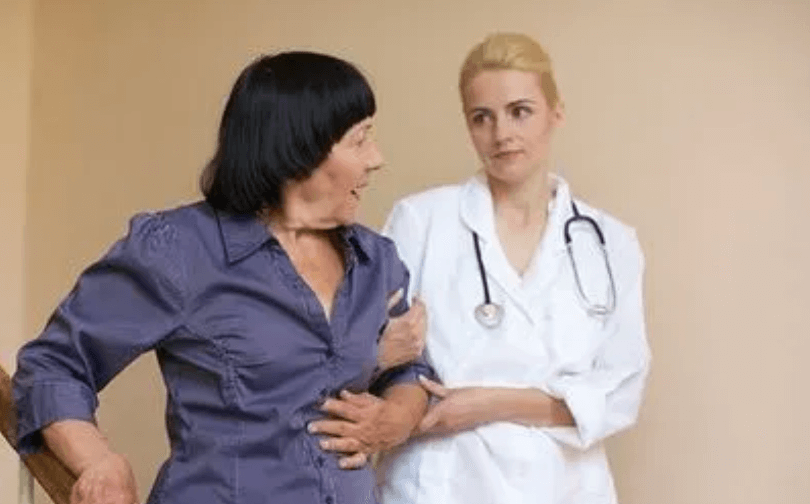Disease
JPD: Screening 4000 Literature, Parkinson's Disease, Psychiatric Symptom Presentation, What Are They?
Psychotic symptoms are common in people with PD and are associated with poor prognosis, such as greater physical disability, cognitive and emotional impairment, caregiver distress, nursing home placement and death.

Parkinson's disease (PD) is a synaptic neuropathy that affects millions of people worldwide and causes severe disability. Parkinson's disease is defined and diagnosed primarily on the basis of the motor impairment it causes, but it is increasingly recognised that non-motor symptoms are a prominent feature of Parkinson's disease.

Psychotic symptoms are common in people with PD and are associated with poor prognosis, such as greater physical disability, cognitive and emotional impairment, caregiver distress, nursing home placement and death.
The term psychosis has been defined in several different ways over the past decades. the clinical features of PD differ from other psychotic disorders, such as schizophrenia or mood disorders with psychotic features. Therefore, the criteria applied to other psychiatric disorders (e.g. DSM) are of limited use in describing the diversity of psychotic phenomena in PD. psychotic symptoms of PD include hallucinations and delusions, which, simply put, are the definition of psychosis. However, there are also some mildly psychotic phenomena, including presence, channeled hallucinations and hallucinations.

It was not until 2007 that the National Institute of Neurological Disorders and Stroke (NINDS)/National Institute of Mental Health (NIMH) of the National Institutes of Health (NIH) proposed diagnostic criteria for PD-psychosis, including mild symptoms, to better define and standardise the distinctive features of PD-psychosis. This working group also proposed and clarified the definition of psychotic symptoms. Delusions are false, fixed, idiosyncratic beliefs that are maintained despite evidence to the contrary; hallucinations are abnormal perceptions without physical stimuli and can involve any sensory modality and may be simple or complex in form; however, they also include the presence of hallucinations and delusions, which are not part of the description of other psychoses.
Estimates of the frequency of PD-psychosis vary widely across studies, with frequencies ranging from 20% to 70%. Systematic reviews of the epidemiology of PD-psychosis are scarce, with most focusing on specific psychotic symptoms such as delusions or visual and auditory hallucinations and mild psychotic phenomena, but lacking attention to other psychotic symptoms.

An up-to-date survey of the epidemiology and characteristics of PD-psychosis is mandatory to facilitate adequate assessment and management of psychosis and to prevent negative effects on the prognosis of PD.
Ines Chendoa et al. from Hospital de Santa Maria, Lisbon, Portugal, assessed the frequency of psychosis and different psychotic phenomena (delusions, visual/smell/auditory/tactile hallucinations, presence, minor psychotic phenomena) in patients with PD.
They conducted a systematic review and meta-analysis of clinical trials, prospective and retrospective cohort studies, case-control studies and cross-sectional studies to report the frequency of psychosis, hallucinations and delusions in patients with PD.

The pooled frequency of psychosis was 20.7% (95% CI 14.5 to 28.6; I2=94%, 15 studies; combined n=2919). None of the pre-determined meta-regressions or subgroup analyses were statistically significant or helped to explain statistical heterogeneity.
The pooled frequency of any form of hallucination was 21.6% (95% CI 14.7 to 30.6; I2 = 95%; 18 studies; combined n = 3161). Baseline PD duration and mean baseline Hoehn & Yahr staging helped to explain the statistical heterogeneity in the meta-analysis of hallucinations.

Based on the available evidence, approximately one in five people with PD will experience psychosis or hallucinations. The risk of hallucinations may be influenced by the duration of illness, Hoehn & Yahr stage and cognitive status.
-
![]()
![]() DiseaseDec 24, 2024
DiseaseDec 24, 2024How Can a Baby Have "Pimples" On His Face When He Is So Young?
-
![]()
![]() DiseaseDec 23, 2024
DiseaseDec 23, 2024Prevention of cardiovascular disease is more important than treatment
-
![]()
![]() DiseaseDec 22, 2024
DiseaseDec 22, 2024What Do I Need To Do To Check Myself For Nasopharyngeal Carcinoma? What Tests Are Needed To Confirm The Diagnosis Of Nasopharyngeal Carcinoma?
-
![]()
![]() DiseaseDec 21, 2024
DiseaseDec 21, 2024What Causes Oesophageal Cancer? What Symptoms Can Esophageal Cancer Cause In The Body?
-
![]()
![]() DiseaseDec 20, 2024
DiseaseDec 20, 2024Uremia Is Most Likely To Be "Dragged Out", The Body Appears 3 "Abnormal", Check As Soon As Possible




